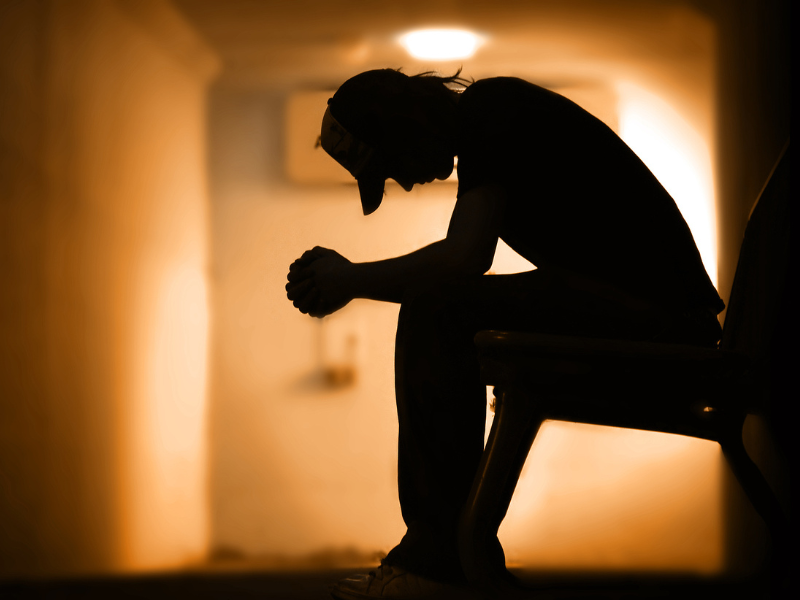Teen Suicide: State of Emergency
The American Academy of Pediatrics declared a state of emergency regarding child and adolescent mental health in 2021. According to the U.S. Centers for Disease Control and Prevention (CDC), suicide is the second leading cause of death among young adults ages 10 to 24, and suicide rates among this age group increased by nearly 60% between 2007 and 2018.
For every suicide, there are many more young people who have thought about or attempted suicide. Nearly 1 in 5 high school students report thinking about suicide, and 9% have reported a suicide attempt. And the CDC reported that during the pandemic, mental health-related emergency department visits for adolescents ages 12-17 increased significantly compared to 2019. Researchers noted young people may have been a high-risk group during the pandemic due to a “lack of connectedness to peers and classmates,” “barriers to mental health treatment” and “increased substance abuse.”
In recognition of National Suicide Prevention Month, I want to shed light on this public health crisis and discuss how parents and caregivers can help their teens.
Why does suicide happen among teens?
Usually, there are many reasons teens may become suicidal. Exacerbated by the COVID-19 pandemic, the teenage years are already a turbulent time for many, and untreated mental health issues such as depression are a leading cause of suicidal ideation or thoughts of suicide. According to the American Academy of Child and Adolescent Psychiatry, teens with depression in conjunction with a family history of suicide, exposure to violence, aggressive behavior, bullying, feelings of hopelessness and severe rejection or loss are at risk of suicide. Other risk factors include anxious feelings, lack of self-confidence, pressure to be successful, financial insecurity and frustration. For some, depression becomes intolerable, and devastatingly, suicide may appear to be a solution to their problems.
What are the warning signs?
Many times, parents do not know their child is troubled until it is too late. Parents need to recognize the warning signs of teen suicide so they can take steps to help them. If your child shows any of the following symptoms and you suspect your child is suicidal, take immediate action by immediately calling 988 to reach the 988 Suicide and Crisis Lifeline and locking up any dangerous weapons, alcohol and drugs.
- Threatening to hurt or kill themself or wanting to die, especially if they have a weapon in their possession.
- Searching for ways to kill or hurt themself (either online or physically searching for a weapon or item with which to hurt themself).
- Writing a suicide note or posting about contemplating suicide on social media.
Other signs that your teen may be struggling may not be as obvious. Children and teens can seem successful and well-adjusted and project a sense of optimism that masks their inner turmoil. Teens may:
- Withdraw from social contact
- Give away possessions
- Have falling grades
- Have trouble focusing
- Lose interest in favorite activities
- Experience changes in eating and sleeping habits
- Exhibit unusually impulsive behaviors
- Express that they are a burden to their family or others
- Increase in their use of drugs and alcohol
Reach out to your child’s mental health provider if you’re concerned about your child’s behavioral changes.
What are some prevention tips?
Research suggests acknowledging and talking about suicide may reduce suicidal thoughts
The best suicide prevention strategy is to foster strong, connected relationships. Opening a dialogue with your child about mental health is critically important to underscore that suicide isn’t a stigma and reassure them that help is available. Research suggests acknowledging and talking about suicide may reduce suicidal thoughts. Listen carefully to their responses without judgment.
If possible, monitor and talk about your child’s activity on social media and always take any threats of suicide seriously. Other tips include encouraging your teen to develop and maintain a healthy lifestyle that includes eating well-balanced meals, drinking plenty of water, getting daily exercise and adequate sleep.
Keep medications, firearms and alcohol securely stored to reduce the risk of a suicide attempt.
We need to remember that parents are not bystanders in their children’s mental health journey and are often the best teachers for their children. Parents can help kids set a foundation for good mental health by modeling healthy behaviors like talking about their feelings openly, normalizing getting help, taking time for themselves and trying to lead a balanced life that acknowledges challenges. Focusing on developing coping skills, embracing life’s challenges, and leading a well-balanced life that includes exercise, productive interests, mindfulness and healthy eating can also be important. Establishing these resilient lifelong habits can be critical to avoiding the mental health spiral that ends in suicide.
What are resources for coping with suicide?
If you suspect that your teen is at risk of self-harming, get professional help right away. Reach out to your child’s pediatrician or a mental health provider who treats children and teens to get a mental health evaluation. Health care providers will work with you and your teen in developing a treatment plan.
Many of my patients use one of the many digital tools available to help manage depression, stress and anxiety, such as the myStrength app, offered free to Kaiser Permanente members. These digital apps can benefit anyone as self-guided self-care or a complement to clinical support.
Another invaluable resource is the National Suicide Prevention Lifeline. This new hotline provides free and confidential crisis support 24/7. You can call, chat or text 988 or visit the NSPL site to connect with a trained counselor who is part of the NSPL network.
We are living in extremely stressful times that have particularly taken a toll on the mental health of teens. By starting a conversation, providing support and getting help for children when they need it, parents can help save their lives.
Related


